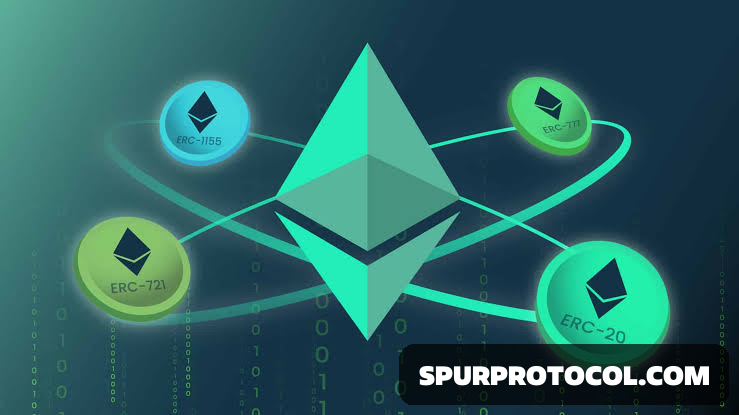What are Token standards
Token standards are essentially a set of rules, protocols, and specifications that delineate how digital tokens should behave and interact within a given blockchain environment.
How Token Standards Function
- Token standards establish the guidelines under which smart contracts operate to execute fundamental functions within a blockchain protocol.
- These standards enable any developer to create their own cryptocurrency token with standardized interfaces and features.
-Through this standardization, developers can create smart contracts for tokens that seamlessly interact with each other. Thus ensuring consistency in data types, functions, and behaviors.
- The establishment of token standards typically occurs through proposals submitted by blockchain developers and the community. Today, Ethereum leads in the smart contracts space and remains a leading platform for numerous applications.
-That is why Ethereum Improvement Proposals (EIPs) are used to define
a.) standards for the core protocol.
b.) They are also used to standardize application programming interfaces (APIs) for nodes and client software.
c.) EIPs also set rules for smart contracts executed on the Ethereum Virtual Machine (EVM).
- Within the Ethereum ecosystem, Ethereum Requests for Comment (ERC) serve as proposals outlining standards for Ethereum-based applications.
b.) It also covers other smart contracts and tokens.
C.) These ERCs act as technical documents containing guidelines for smart contract development.
some of the most notable token standards associated with prominent blockchain ecosystems.
1. ERC-20
- ERC-20, short for Ethereum Request for Comments 20, is the most widely adopted token standard on the Ethereum blockchain.
- This standard outlines a set of rules and guidelines that define how a token contract should be implemented, allowing for seamless integration with various applications, exchanges, and wallets within the Ethereum ecosystem.
2. ERC-721
- Contrary to ERC-20, ERC-721 is a standard that enables the creation and management of unique and indivisible digital assets known as non-fungible tokens (NFT).
- This standard has revolutionized the digital space, providing a framework for the creation and trading of one-of-a-kind digital assets, such as digital art, collectibles, gaming items, and virtual real estate.
3. BEP-20
- BEP-20 is the main token standard of the BNB Smart Chain (BSC).
- It serves a similar purpose to ERC-20 but operates within the BNB Chain ecosystem.
- This standard allows for the creation and management of tokens that can be seamlessly integrated with various decentralized applications and platforms within the BSC network.
4. BEP-2
- BEP-2 is a technical standard for the issuance and implementation of tokens on the BNB Beacon Chain.
- This standard defines a set of rules that tokens should follow to function in the BNB Beacon Chain ecosystem.
5. SPL
- SPL provides a set of rules and protocols that define how tokens should behave and interact on the Solana network.
-Compliant with these standards, tokens on Solana, including its native SOL token, exhibit interoperability with Solana wallets and smart contracts.
Benefits of Token Standards
● Interoperability
- Token standards ensure seamless interaction among products developed using the same standard.
For example, assets based on the ERC-20 standard are interoperable with other products and services also built upon this standard.
- This interoperability facilitates trading ERC-20 tokens for others. Without token standards, trading multiple cryptocurrencies would be significantly more complex, requiring specific wallets for each token instead of using a single wallet capable of holding various cryptocurrencies.
● Composability
- In programming, composability allows developers to reuse existing components to create new products. This principle applies to token creation as well.
- By adhering to token standards, developers spend less time on basic functionalities. Thus enabling them to allocate more time to experimentation and innovation.
● Efficiency
- Token standards also streamline interaction between smart contracts. When smart contracts adhere to token standards and deploy tokens, they can efficiently monitor the created tokens.
- Standards such as ERC-20 and BEP-20 provide essential functions like address retrieval and token balance. Thus allowing smart contracts to monitor tokens more effectively.

